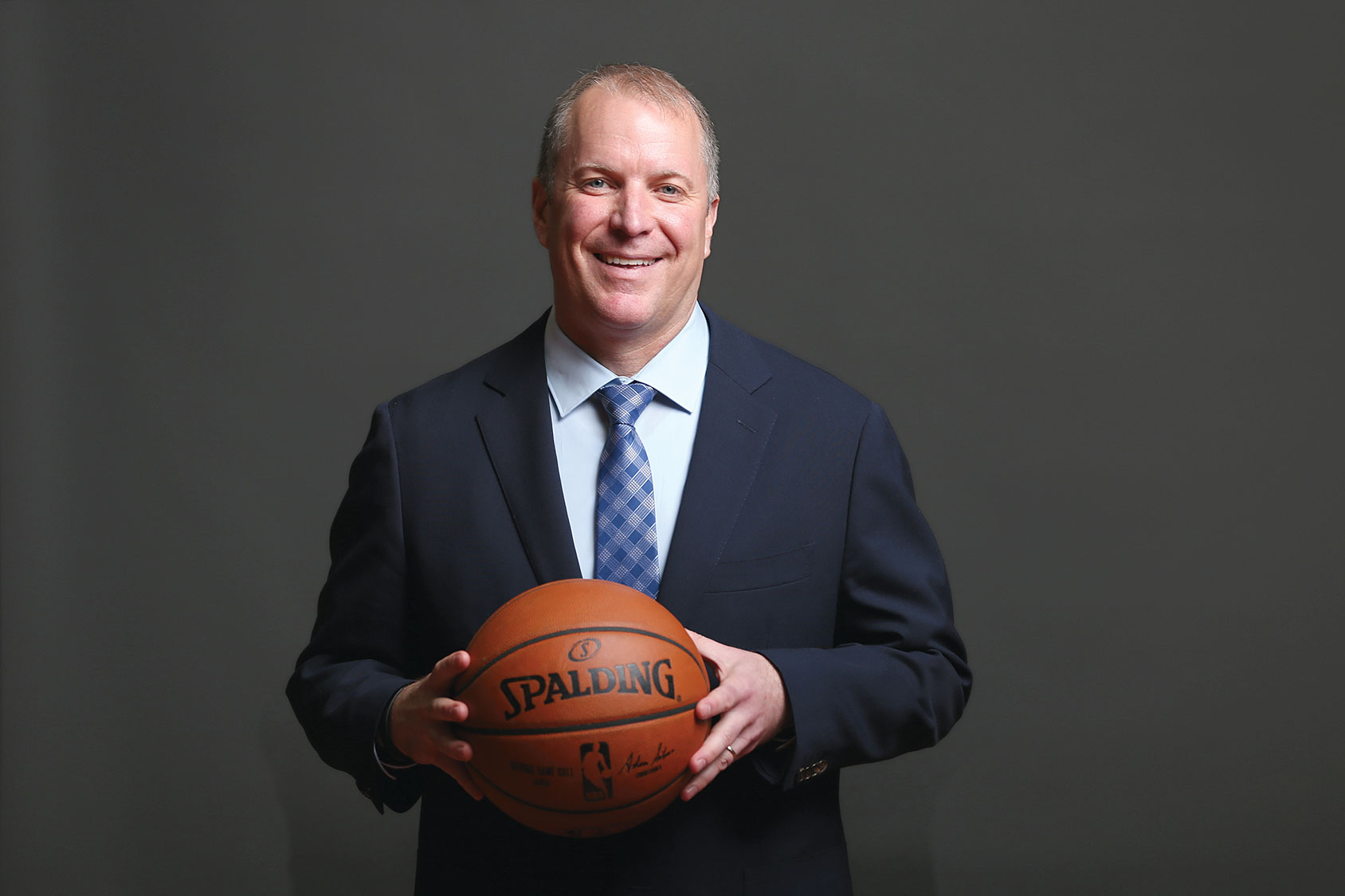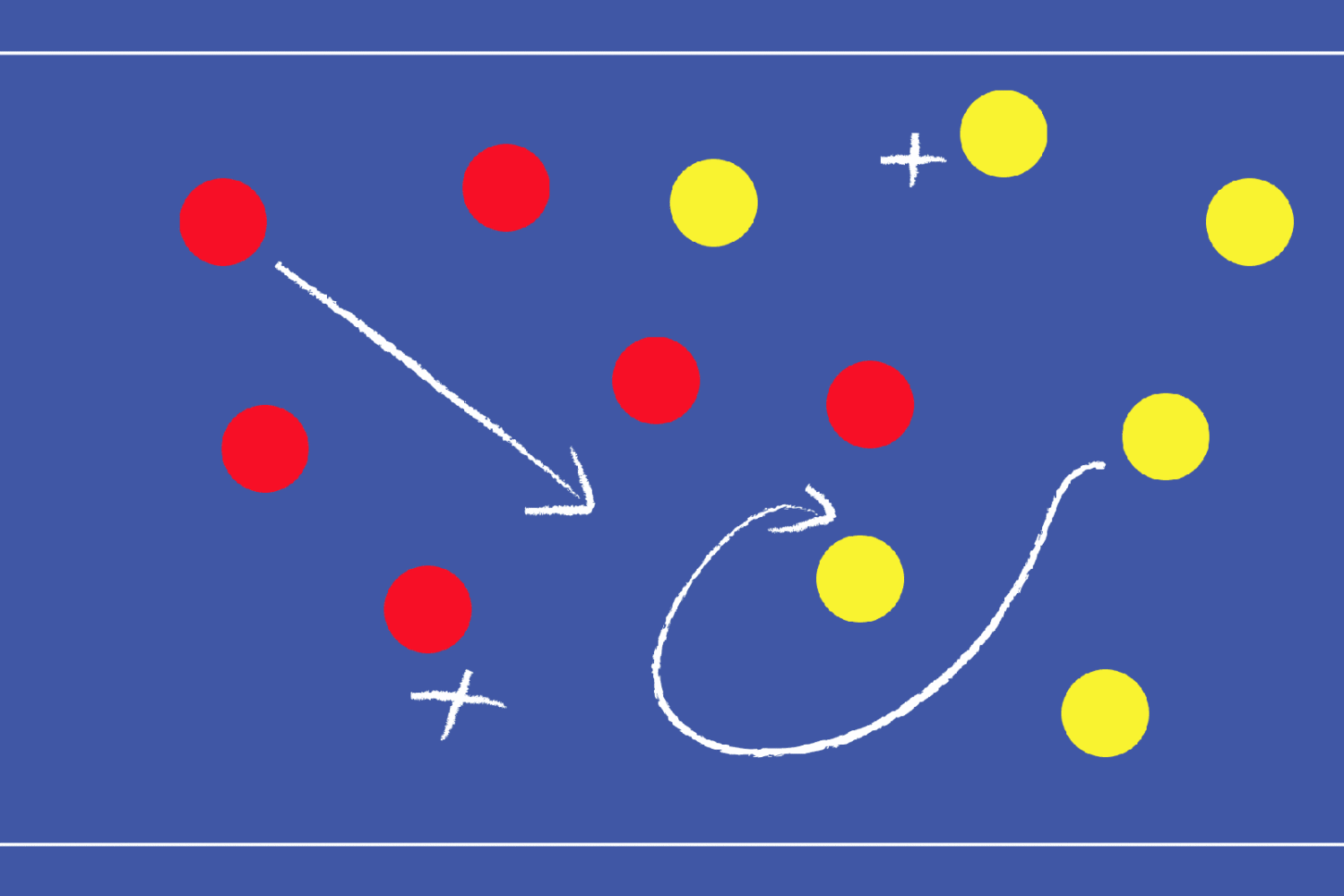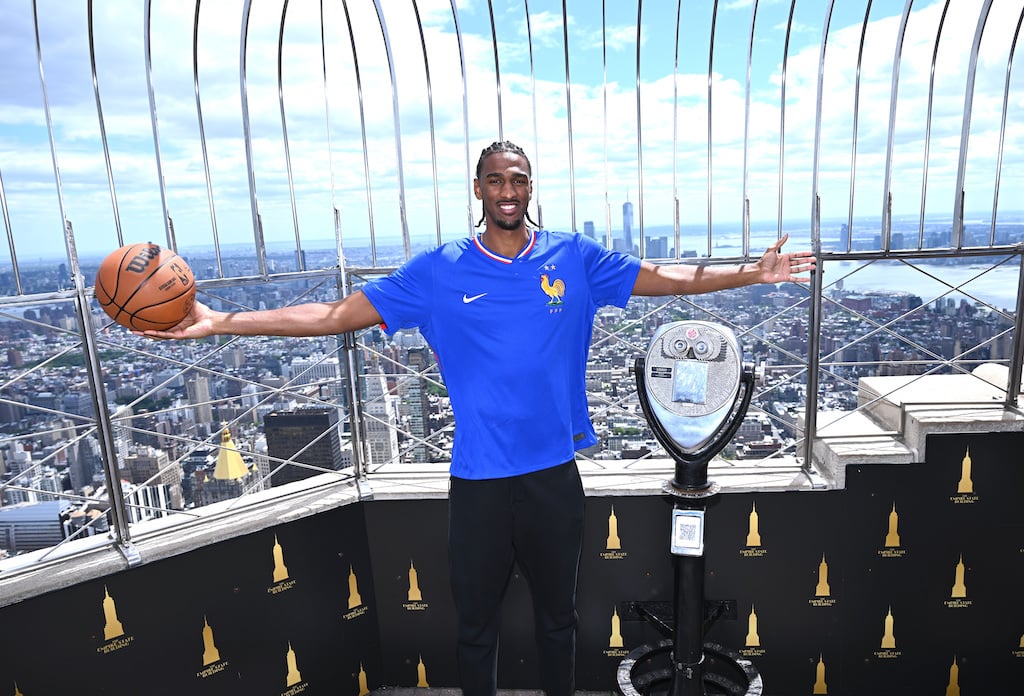The Washington Wizards’ new general manager, Tommy Sheppard, has no Wikipedia page and isn’t on social media. Little known outside the league, he was hired in July to replace longtime team president Ernie Grunfeld—a surprising decision given that owner Ted Leonsis had brought in a consultant to look outside the organization. Sheppard is a consummate Wizards insider, having been employed by the team for 17 years, almost all of them working closely with Grunfeld.
So when Leonsis called Sheppard into his office in July, it wasn’t the kind of move Wizards watchers had initially expected. “I wasn’t trying to get the job; I was trying to do the job,” says Sheppard, who had been interim GM for three months. “I knew if I didn’t get [the full-time position], people could at least look at what I did and say, ‘He did the best for the franchise while he was there, anyway.’ ”
A father of seven, Sheppard works in an industry where hirings and firings tend to mean frequent moves, so he and his wife, Rosie, decided early on that she would homeschool the kids. “Who knew I’d live in two places in 25 years?” he says. Before coming to Washington, Sheppard served in a variety of roles for the Denver Nuggets, including head of communications.
Now the low-key executive is responsible for revamping the underachieving Wizards. His hiring was greeted with skepticism by many fans, who were hoping for a more dramatic change in the front office. After all, the Wizards—formerly the Bullets—haven’t won an NBA championship since 1978 and last went to a conference final in 1979. At the moment, they find themselves in an in-between state: They’re not dreadful enough to get the number-one pick in the NBA Draft, which would allow them to sign a game-changing player such as Zion Williamson, and they’re far from good enough to make a serious NBA Finals run.
Hence, for the moment, Sheppard’s job will be about restructuring, biding time, and waiting for star player John Wall to return from injuries next season. Rather than storming in and tearing everything up, his approach will be more modest: “I try to tell young players, ‘Be humble or be humbled.’ Because if you’re not humble, you will be humbled at some point. Happens to everyone.”
This article appears in the October 2019 issue of Washingtonian.



















